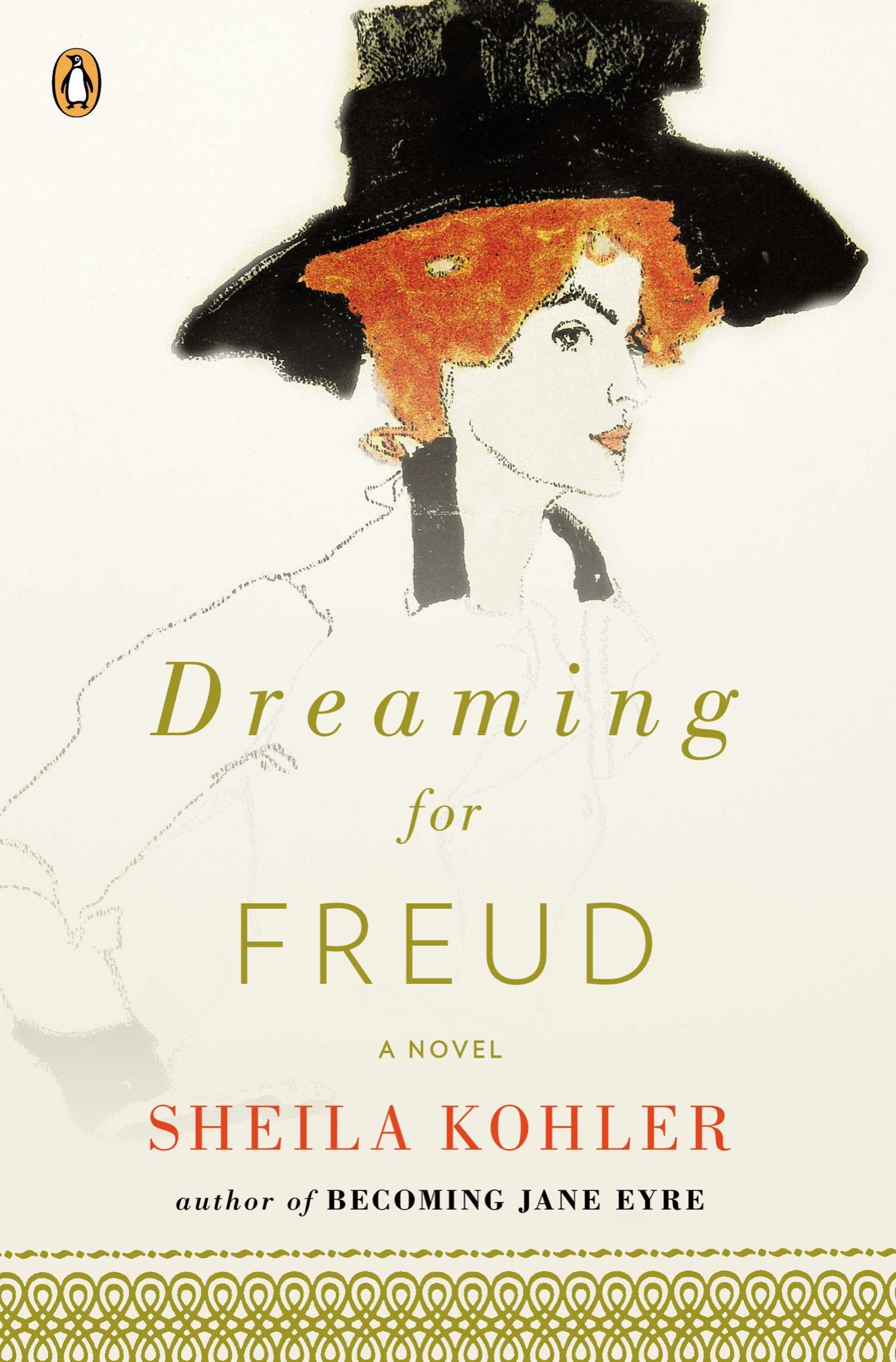
Dreaming for Freud
A Novel
- اطلاعات
- نقد و بررسی
- دیدگاه کاربران
نقد و بررسی

April 7, 2014
It was “a struggle for power,” says the patient of her psychoanalysis in this short novel based on Sigmund Freud’s famous “Dora” case. In her latest, Kohler (Becoming Jane Eyre) alternates between Dora and Freud’s perspectives while chronicling their three-month encounter—which began in October 1900, when Dora was 17—and its implications for both in the years that followed. Forced into therapy by her father, Dora battles Freud over the “true” interpretation of her ailments, which, most importantly, include losing the ability to speak. She reveals a ferocious intelligence and powers of analysis to equal or surpass those of her famous psychotherapist, mischievously fabricating her dreams to play on his own neuroses. The first 200 pages of absorbing prose turn themselves, as we read through the lies, betrayal, and, of course, sex. But the tension unravels in the summary of Dora’s later years, which unfortunately reduce her to an ordinary woman, embarrassed by her adolescent “desire to find the answers to all the unanswerable questions.” Though this quick read is an inventive piece of reimagining, it ultimately lacks the complexity that could have made it a serious contribution to the literature inspired by Freud. Agent: Robin Straus, Robin Straus Agency.

April 15, 2014
Kohler's (Bay of Foxes, 2012, etc.) new novel fictionalizes the story of Dora, one of Freud's earliest and most memorable patients. In 1900, a wealthy industrialist brings his 18-year-old daughter to his own doctor--Sigmund Freud--for treatment of her "nervous" cough and "imaginary" leg and abdominal pains. Dora is crucial to Freud, who is still in the beginning stages of his career, not only for the fee he can command for her daily sessions, but because he hopes to find validation of his theories concerning the causes of hysteria. Reclining on his Persian-carpeted couch, gazing at his Greek and Roman antiquities, Dora (a pseudonym) is at first a reluctant analysand. She's there because she accused a family friend, Herr Z., of trying to molest her, and her family thinks she's lying. Soon she begins to view Freud as the only confidant who believes her stories. She tells him that her father has an invidious motive for defending Herr Z.: He is consorting with Frau Z. and is in effect willing to barter his daughter in return for Herr Z.'s cooperation. Freud appears sympathetic at first but later alienates Dora by implying that, far from feeling revulsion for Herr Z., she desires him. In retaliation, after dipping into Freud's critically reviled The Interpretation of Dreams, Dora invents two dreams which Freud, eager for such fodder, interprets as further indications of Dora's sexual obsessions. Thus, though hewing closely to the details of the Dora case study as written and published by Freud after the abrupt departure of his patient, the novel tests its veracity. Kohler handily exploits the therapeutic deadlock between the two principals to reveal character. Freud's insecurities, frustrations, self-absorption and longing--for a more prosperous existence, for a trip to Rome, for the return of his estranged friend Fliess--are sensitively evoked, as are Dora's internal conflicts. As both the patient's and the doctor's vulnerabilities are exposed, the very nature of a person's "story" is called into question.
COPYRIGHT(2014) Kirkus Reviews, ALL RIGHTS RESERVED.

April 1, 2014
To him she is a willful, rude, intellectually pretentious young girl; to her he is just another older man trying to control her life and make her obedient to her father's wishes, but together they somehow arrive at a pivotal moment for both of them. Despite the briefness of their relationship, each one knows that their time together has been the making of the other. In her latest novel Kohler (Becoming Jane Eyre; Cracks) reimagines one of Sigmund Freud's most famous cases involving a young patient named Dora, the basis for his book Fragment of an Analysis of a Case of Hysteria. The sensual prose re-creates bourgeois 1900s Vienna and surrounding mountain resorts with a seductive lushness that draws the reader in. The author's deftly perceptive characterizations, meanwhile--a nuance here, a reference there--create alternately sympathetic and frustrated reactions to both the patient and the doctor until the reader has also undergone a transformative experience. Some may find the flashes forward and backward in time to be distracting or confusing, but nothing breaks the dreamlike atmosphere so effectively created by the author. VERDICT Kohler's intelligent novel will be very much enjoyed by fans of Karen Mack and Jennifer Kaufman's Freud's Mistress, and those interested in Freud or psychoanalysis. [Coming in May from She Writes Press is Rebecca Coffey's Hysterical: Anna Freud's Story, a novel about Freud's daughter.--Ed.]--Cynthia Johnson, Cary Memorial Lib., Lexington, MA
Copyright 2014 Library Journal, LLC Used with permission.

April 15, 2014
Known for her expressive writing and insightful explorations of her characters' inner lives, Kohler is the ideal novelist to relate the story of Sigmund Freud and his best-known patient, the pseudonymous Dora, a restless and intellectually minded 17-year-old he treated for hysteria at his Vienna office in 1900, when he was still poor and struggling. With delicate precision, Kohler traces their ongoing dynamic, depicting his attempted cure for her symptoms (loss of voice, mysterious leg pain) through psychoanalysis and the even more fascinating undercurrent of manipulation present in their connection. Feeling ill-used by men, Dora suspects her father sent her to Freud, his former doctor, as a way of persuading her to accept his affair with Frau Z., a family friend. When Freud plants suggestions about the young woman's unacknowledged desire for Frau Z.'s husband, she crafts a subtle plan of her own even as she appreciates his willingness to listen to her. By creatively imagining Dora's viewpoint as well as Freud's, Kohler presents a feminine perspective on this classic case.(Reprinted with permission of Booklist, copyright 2014, American Library Association.)




دیدگاه کاربران